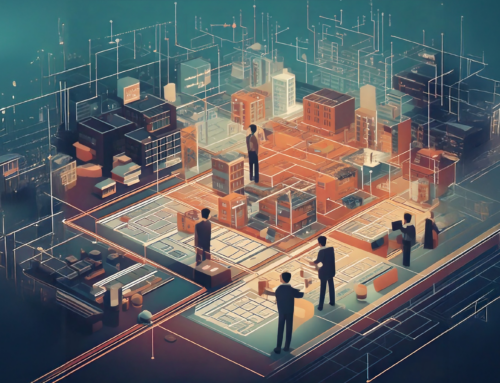

Artificial Intelligence (AI) is rapidly transforming local government operations. From streamlining paperwork to enhancing public engagement, AI empowers municipalities to optimize daily workflows and make more informed decisions. By automating repetitive tasks and unlocking data insights, local governments can deliver better services with greater transparency and accountability. This guide explores practical, real-world applications of AI in local government and explains how municipalities can adopt AI technologies to build smarter, more resilient communities.
What is AI in Local Government?
AI encompasses a set of technologies designed to simulate human intelligence, such as:
- Machine Learning (ML): Identifies patterns and predicts outcomes based on data
- Natural Language Processing (NLP): Enables systems to understand and respond to human language
- Predictive Analytics: Anticipates trends and future needs using historical data
In the local government context, AI tools help automate administrative work, extract insights from complex datasets, and improve responsiveness to resident needs. For example, AI can support initiatives that address challenges outlined in our guide on public works struggles, including staffing shortages and outdated manual processes. Additionally, AI-driven tools align closely with public works asset management strategies by enhancing visibility, planning, and resource optimization across departments.
Key Benefits of AI in Municipal Operations
Municipalities adopting AI are seeing tangible improvements in efficiency, service quality, and cost management. Key benefits include:
- Operational Efficiency: AI automates routine processes like form submissions, inspections, and data entry
- Data-Driven Decision-Making: Real-time analytics help leaders make better infrastructure, budgeting, and staffing decisions
- Cost Savings: Reduces labor-intensive tasks and optimizes resource allocation
- Faster Citizen Services: AI-powered tools can instantly respond to common requests and route complex issues
- Increased Transparency: AI improves recordkeeping, audit trails, and reporting for compliance and community trust
5 Real-World Applications of AI in Local Government
1. AI-Powered Chatbots for Citizen Support
Natural Language Processing (NLP)-driven chatbots provide 24/7 virtual assistance to residents. These tools can:
- Answer FAQs on permits, taxes, and utility services
- Route inquiries to relevant departments
- Integrate with CRM platforms to track issues and responses
For example, the City of Atlanta’s ATL311 chatbot cut staff workload by 50% and improved citizen response time by 80%. Explore the ATL311 case study.
2. Traffic Flow Optimization Using AI
Cities like Pittsburgh use AI to manage traffic in real time. The Surtrac system, for instance, analyzes live traffic patterns and adjusts signal timings dynamically, reducing travel time by 25% and idling by 40%. Learn more about Surtrac’s AI-driven traffic system.
3. Automated Document Processing
AI tools using Optical Character Recognition (OCR) and ML can:
- Digitize handwritten or scanned documents
- Extract structured data
- Flag inconsistencies or missing information
This reduces permit approval times and minimizes human error. For example, the City of Sydney uses AI to review zoning documents, cutting processing times by 30%. View Sydney’s ePlanning system.
4. AI in Social Services
AI helps social service agencies improve case management and resource allocation. For instance:
- Natural Language Generation (NLG) converts caseworker notes into structured data
- Predictive analytics forecast demand for housing, mental health, or eldercare
Peterborough City Council’s “Hey Geraldine” AI assistant reduced administrative time by 20%, letting staff focus more on high-priority clients. Explore Peterborough’s AI approach.
5. Public Sentiment Analysis
AI can process resident feedback from surveys, social media, and online platforms to:
- Detect public sentiment trends
- Highlight common concerns
- Guide service improvements
Chicago’s transit authority used sentiment analysis to adjust bus routing based on rider feedback, increasing ridership by 10%. See how Chicago applies AI to transit.
Challenges and Considerations
Adopting AI in local government comes with unique considerations:
- Data Privacy & Security: Systems must comply with regulations (e.g., CCPA, GDPR) and use encryption to protect citizen data
- Staff Training: Successful AI adoption requires workforce buy-in and training on new tools
- Budget Constraints: While upfront costs exist, long-term savings through efficiency gains often justify investment
- Bias & Ethics: AI models must be audited to avoid biased decisions, especially in social services or law enforcement applications
The Future of AI in Local Government
AI adoption will only grow in local government as more municipalities digitize operations. In the future, expect to see:
- Predictive planning for infrastructure
- Personalized digital services
- AI-integrated emergency response systems
Municipalities that start today with tools like Novo Solutions’ asset management software can lay a strong foundation for scalable AI integration.
This blog reflects the growing momentum of AI in local government. Municipalities that invest early in responsible AI will be better positioned to lead in transparency, efficiency, and public service delivery. If you’re ready to explore how AI and asset management software can help your organization improve operations and better serve your community, reach out to our team today.
FAQ: AI in Local Government
What is AI in local government?
AI in local government refers to the use of artificial intelligence technologies to enhance administrative tasks and citizen services through automation, data analysis, and improved decision-making.
How does AI optimize administrative workflows?
AI automates document processing, traffic management, and citizen inquiries, reducing manual tasks and improving efficiency in local government offices.
Can AI improve citizen services?
Yes, AI-powered chatbots and sentiment analysis tools provide 24/7 support and personalized responses, enhancing resident satisfaction.
What are the challenges of adopting AI in local government?
Challenges include data privacy concerns, workforce training needs, budget constraints, and ensuring ethical AI use to prevent bias.
How can local governments start using AI?
Municipalities can begin by digitizing data, piloting AI tools for tasks like document automation, and training staff to integrate AI effectively.





